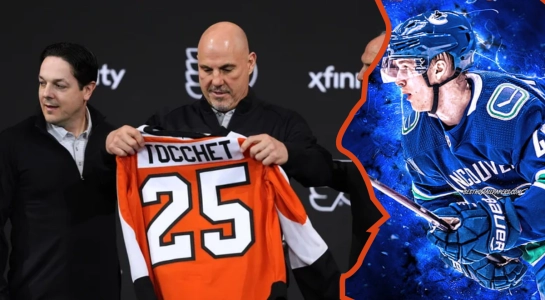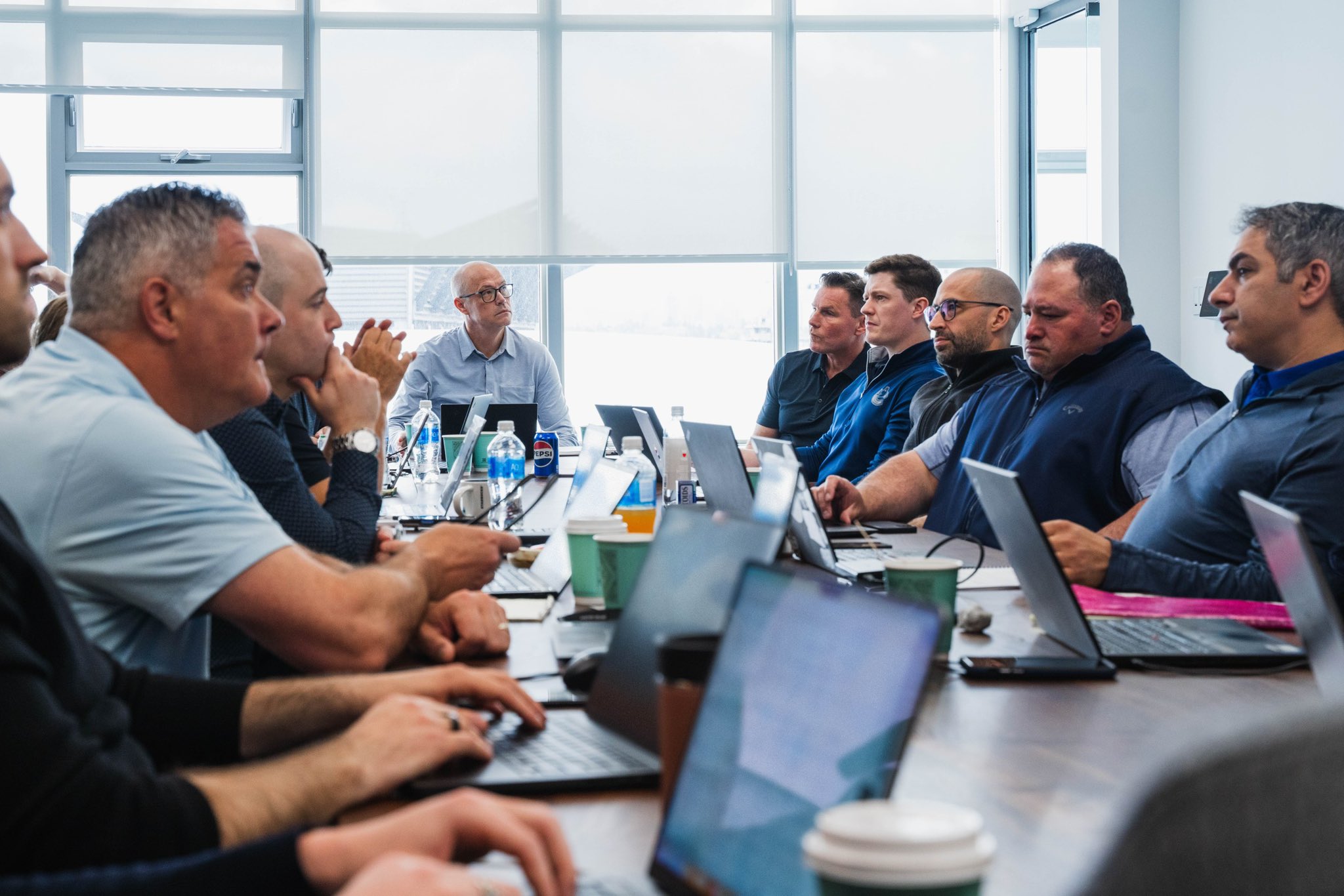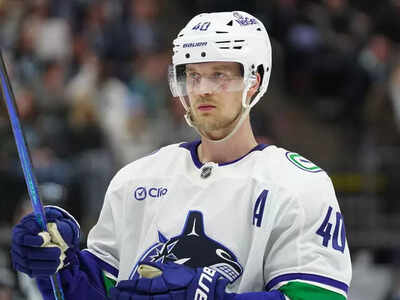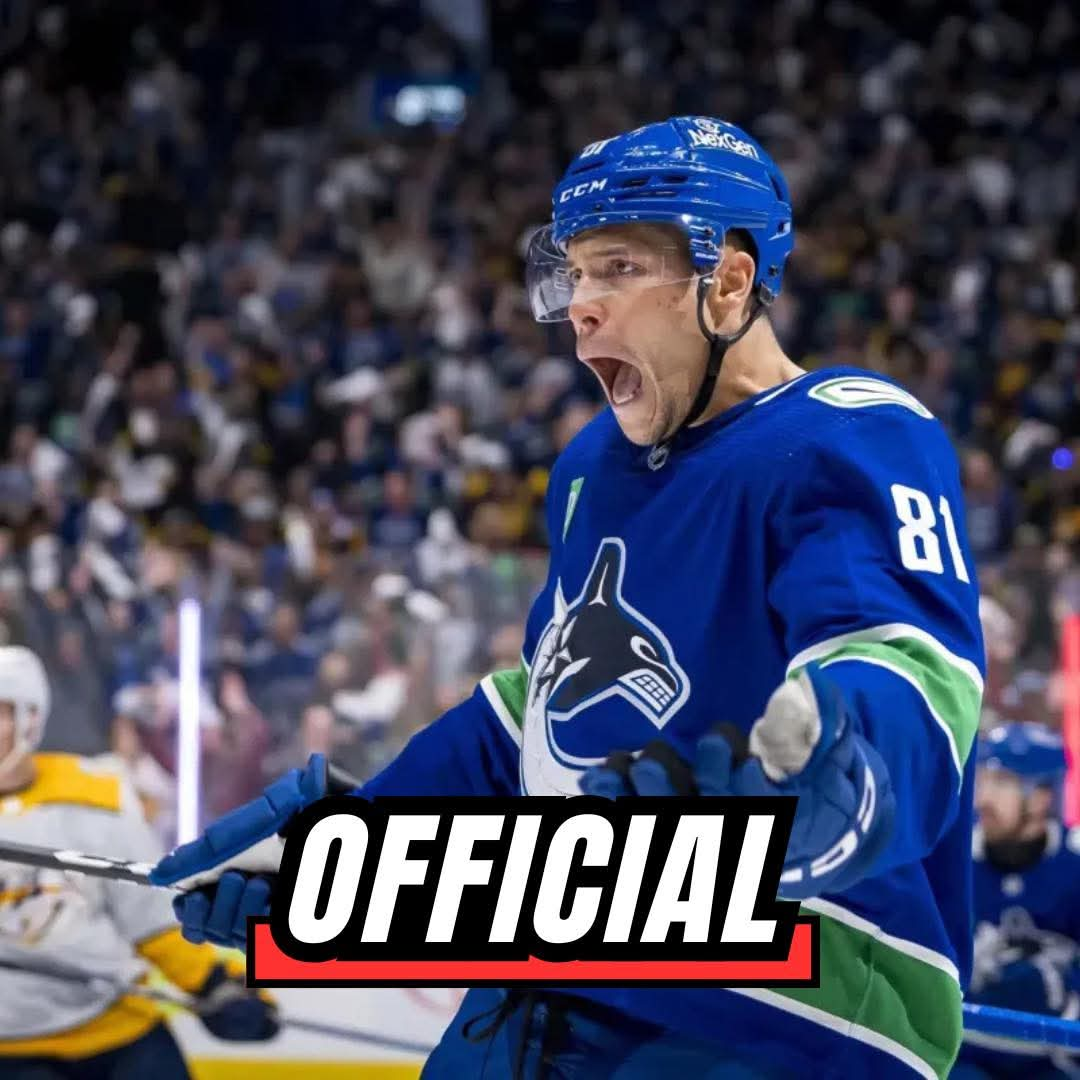Former Canucks Coach Rick Tocchet Admits He Mishandled Pettersson-Miller Rift in Candid Reflection on Disappointing Season
In a surprising and deeply reflective moment, former Vancouver Canucks head coach Rick Tocchet recently opened up about his turbulent final season with the team, offering a rare look into what went wrong behind the scenes—particularly in regard to the highly publicized tension between star forwards Elias Pettersson and J.T. Miller.
Tocchet, who has since taken the reins as head coach of the Philadelphia Flyers, made headlines earlier this year when he stepped down from his position in Vancouver following a chaotic and disappointing 2024–2025 NHL campaign. What made his departure even more surprising was that Tocchet had just come off a season where he had been widely celebrated, earning the prestigious Jack Adams Award for the league’s top coach and helping guide the Canucks to a Presidents’ Trophy with the best regular-season record.
But all of that momentum seemed to evaporate during the most recent season. The Canucks struggled both on and off the ice, eventually missing the playoffs entirely. Much of the media attention centered on the rumored feud between Pettersson and Miller, two of the team’s cornerstone players, and the ripple effect it had across the locker room. Amid the speculation and fan frustration, many wondered how such a promising team had unraveled so quickly.
Rather than deflect blame or single out players during his exit, Tocchet showed grace and humility. In his most recent comments, he didn’t shy away from addressing the issues head-on and instead used the opportunity to accept personal responsibility for how certain matters were handled.
“There’s no doubt it was a tough year,” Tocchet began. “But I’ll say this right now—I don’t think it was ever about guys not trying. The effort was there. I’ve said that before, and I’ll say it again. We had a good group. There’s no villain in the story.”
While Tocchet praised the overall work ethic and commitment of the team, he acknowledged that the internal discord, especially between Pettersson and Miller, created a distraction that had a bigger impact than most people realized. For the first time, he admitted publicly that he mishandled the situation and allowed it to consume too much of his energy—at the expense of other players who also needed his support.
“The Petey-Miller thing was definitely a storyline,” Tocchet said candidly. “It wasn’t something we could just ignore. It affected some of our guys, and I think I focused too much on it. That’s on me. Looking back, I should’ve balanced my attention better. There were a few players who needed me more than I realized at the time, and I wasn’t as available for them as I usually am.”
This moment of self-reflection is striking, especially in the cutthroat world of professional sports where blame is often shifted and rarely claimed. Tocchet could have easily chalked the team’s failures up to locker room chemistry issues, front-office decisions, or even individual underperformance. Instead, he turned the spotlight on himself, recognizing that leadership isn’t just about addressing the biggest fires—it’s about ensuring the entire team feels seen and supported.
The dynamic between Pettersson and Miller had been under the microscope all season. Reports of on-ice frustration, disagreements over roles, and conflicting leadership styles painted a picture of a locker room at odds. For a team expected to contend for a Stanley Cup, those cracks in unity proved costly.
Tocchet didn’t offer many specifics about the root cause of the rift, but his acknowledgment that it affected team morale confirms what many had suspected. More importantly, he acknowledged that his role as a coach involves managing personalities as much as systems and strategies.
“Every team goes through things,” he said. “But I think I spent too much time trying to fix something between two guys instead of stepping back and seeing the bigger picture. That’s something I’ve learned from and will take with me moving forward.”
Despite the disappointing finish to the season, Tocchet made it clear that he holds no bitterness toward the Canucks organization or its players. On the contrary, he spoke with admiration and appreciation for the team, even amid the season’s chaos.
“I have nothing but respect for that group,” he said. “They worked hard. We were in tough spots a lot of nights, but they battled. It just didn’t go our way this year.”
His parting comments show the kind of character Tocchet brings to the bench. By taking ownership of the team’s emotional missteps and reflecting openly on where he fell short, Tocchet offered a model of accountability that’s rare in high-level sports.
For fans and players alike, this honesty might not change the outcome of the 2024–2025 season—but it does provide some closure and clarity. The Canucks’ collapse wasn’t about laziness or disinterest. It wasn’t about one bad apple or a toxic locker room. It was about miscommunication, mismanagement, and the complex dynamics that come with managing elite athletes with strong personalities.
As Tocchet embarks on his new journey in Philadelphia, he’ll take with him a wealth of experience—including the hard lessons from Vancouver. And for Canucks fans, perhaps the silver lining in this turbulent chapter is the knowledge that their former coach cared deeply enough to admit when he got it wrong.
In an era where finger-pointing and public blame are all too common, Rick Tocchet chose humility, reflection, and accountability. And in doing so, he showed that leadership isn’t just about wins and losses—it’s about learning from both.



